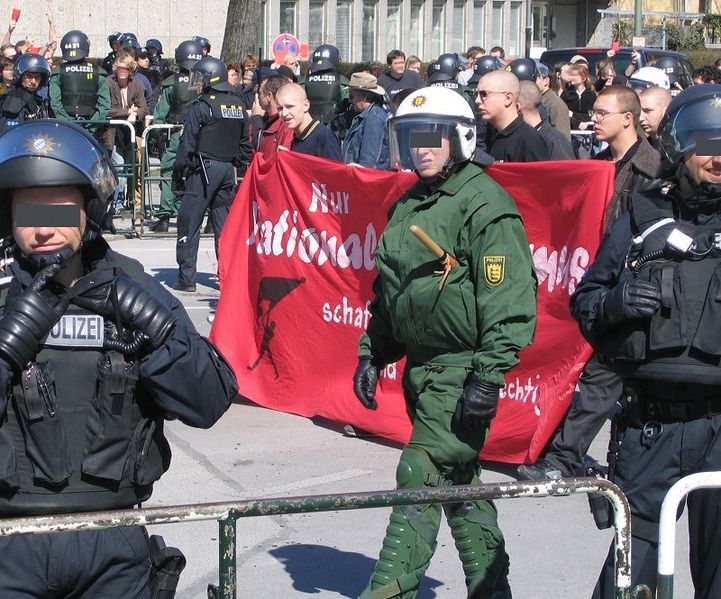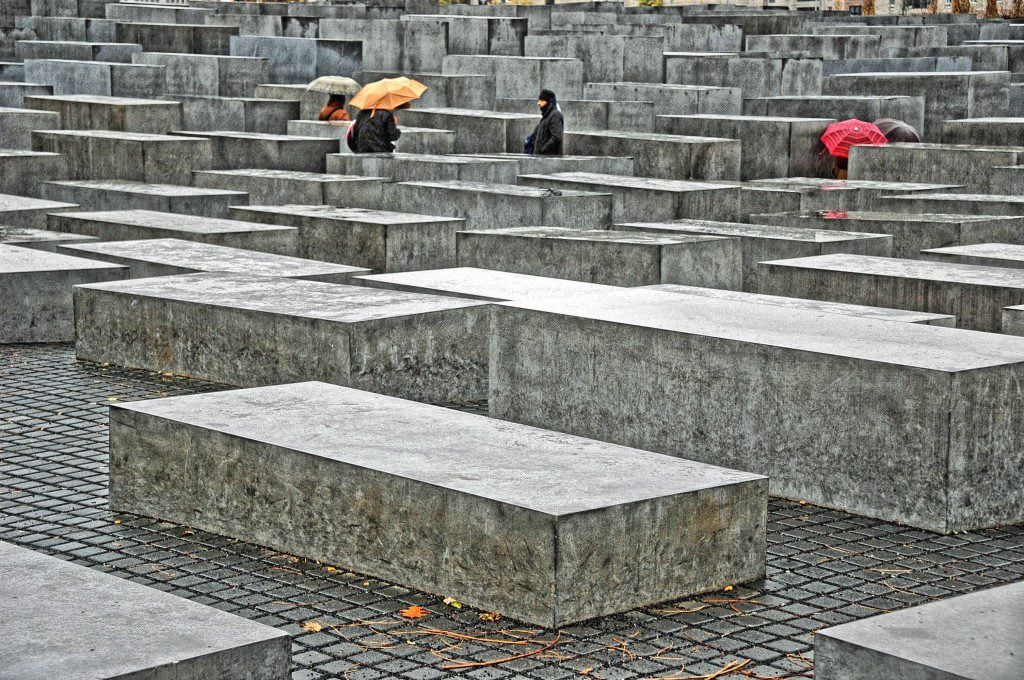
Here’s an excerpt from an opinion piece at NBC News:
It’s impossible to discuss what might be motivating these attacks without an understanding of the role anti-Semitism plays in narratives about gentrification and poverty. Anti-Semitism is not just a blind hatred of Jews — it is often tied to conspiracy theories about Jewish economic and political power. The Jews running the banks. The Jews as the landlords.
Just as capitalism absolutely depends on racism in order to justify exploiting black and brown bodies for labor, it also depends on anti-Semitism to scapegoat the Jews and obscure the wheels of its own violence. Poor people are told it’s the Jews who are to blame for their poverty and oppression. Oppressed people are driven apart and pitted against each other. That’s the whole point. It’s so painful — and as we see, violent — when it works the way it’s intended.
It’s everyone’s responsibility to challenge hatred, and this hate is designed to divide and weaken us. We won’t fight it by turning on our neighbors. And if you’re looking to blame communities of color for their anti-Semitism in order to deflect your own responsibility, you’re doing it wrong.
Here are some similar words from the Daily Beast:
New York is reeling from a wave of anti-Semitic attacks, and speaking as a Jewish parent who lives in Brooklyn, I can tell you that it’s terrifying.
It is also confusing. The vast majority of anti-Semitic attacks in this country are carried out by right-wing white supremacists. But most of the recent New York-area attacks have been carried out by people of color expressing very different grievances, or none at all. So is this the same phenomenon, or a different one? Hate, yes, but what kind of hate?
The answer is not simple. The recent street violence and acts of terror are based, in part, on anti-Semitic conspiracy theories similar to those on the Right. And yet, it is dangerous and misleading to see this as the same phenomenon, because the social contexts, the dynamics of race, and the relationships to power are all quite different. . . .
But in these cases, the anti-Semitic themes are sometimes wedded to quasi-progressive concerns about racial justice, or, more broadly, to grievances against Jews as usurious landlords or agents of gentrification. . . .
This combination of baseless hatred and socio-economic grievance stands in stark contrast to the wordy theoretical manifestoes of white supremacist anti-Semitism.
And here’s the twitter version of the above:
To me, the difference between right and left anti-Semitism is that the right just straight up hates Jews while the left is critical of Jewish participation in the ruling class without critical analysis of how the long history Jewish marginalization complicates that participation.
— Lux Alptraum
Here’s the deal:
Antisemitism started, once upon a time, as a rivalry between two religions vying to be the religion of choice for non-pagan Romans. Along the way, in Europe, at any rate, Jews were simultaneously restricted in the occupations available to them, became moneylenders because Christians were prohibited from doing so, and then were deemed to be greedy as a consequence, and anti-Judaism, that is, opposition to Jews on account of their religious beliefs, transformed into antisemitism, opposition to Jews as an ethnic group, attributing to them stereotypes of greed and control of the economy, the desire to do harm to Christians (or Muslims), etc., along with a literal or figurative blood libel (that is, the “classical” version in which Jews were accused of making matzoh with Christian children’s blood vs. accusations of killing Christians for other motives).
The antisemitism of the Nazis added the extra element of the “stab in the back,” in which they accused the Jews of orchestrating the surrender of the Germans in World War I even though, in their warped understanding, Germany was winning the war.
The antisemitism of David Duke and other “modern” right-wing extremists adds as a bonus the conviction that Jews control Hollywood as well as the economy, and, with the birth of the state of Israel, that they exercise control over world affairs more broadly speaking than just with respect to the economy.
Is the antisemitism of leftists or of black people in cities such as New York City, or of Louis Farrakhan and the Nation of Islam, any different? They are perhaps more likely to attribute to Jews blood libel-like accusations specifically within Israel (that is, kidnapping specifically Palestinian children for their organs), but still base their accusations on the conviction that the Jews control the economy and use that control to do harm.
And that brings us back to this attempt to find “nuance,” and those who would rationalize the antisemitism of blacks as a misdirection of genuine grievances against nefarious landlords or capitalists generally speaking or an unjust system, which therefore shouldn’t be vigorously condemned because it would only make these folks feel bad, inflame passions, etc.
But couldn’t you say exactly the same thing of the white male antisemites marching with their torches? They do not hate for no explicable reason other than the desire to hate. They have grievances not with Jews but with the wider world. No one imagines that the existence of such grievances justifies their actions, that we must therefore try to understand what’s making them unhappy and try to solve the deeper problem. And the same sure as heck ought to be the case for antisemitism coming from the left.
Image: A Munich Neonazi demonstration, from Wikipedia, https://upload.wikimedia.org/wikipedia/commons/b/be/Neonazi_2.4.2005_M%C3%BCnchen_2.jpg.
You can tell when I am trying to follow the rule of “always include a picture” while at the same time want to click “publish” and move on to other things, when I grab something I’ve used before that’s modestly related to the topic at hand.











